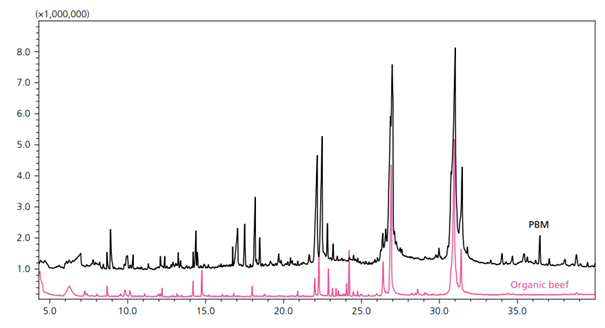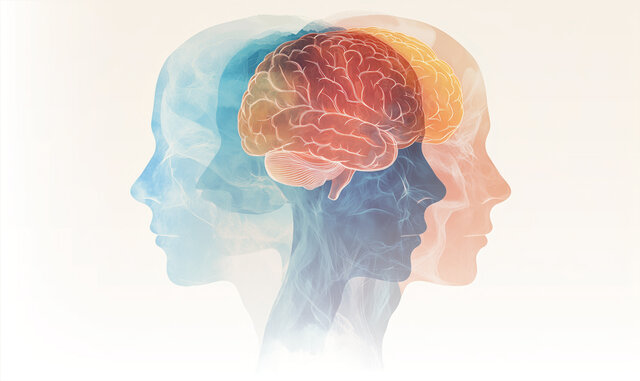Panel discussion on...
Cognitive health
The support of nutraceutical filed to the global brain health issue
Brain health refers to how well a person’s brain functions across different areas and include various aspects:
- Cognitive health — how well you think, learn, and remember.
- Motor function — how well you make and control movements, including balance.
- Emotional function — how well you interpret and respond to emotions (both pleasant and unpleasant)
- Tactile function — how well you feel and respond to sensations of touch, including pressure, pain, and temperature.
- Sensory function — how well you see, hear, taste, and detect smells.
Brain health can be affected by age-related changes in the brain, injuries such as stroke or traumatic brain injury; mood disorders such as depression, substance use disorder, or addiction; and diseases such as Alzheimer’s and related dementias.
Cognitive health, which is just one aspect of overall brain health, include different abilities to conduct many everyday activities effectively: to think, learn, and remember clearly.
Genetic, environmental, and lifestyle factors may contribute to a decline in thinking skills and the ability to perform everyday tasks at any age. Luckily, many of these factors can be changed or managed.
Scientific research suggests several steps to reduce the risk of cognitive decline and help maintaining in health the cognitive functions: take care of your physical health, manage high blood pressure, eat healthy foods, reduce alcohol consumption, be physically active, keep your mind engaged, stay connected with social activities, sleep well, don’t neglect pleasure, reduce stress, address physical and mental health problems, understand how medicines can affect the brain (1, 2).
In today’s post-pandemic world – rife with geopolitical chaos and uncertainty – the mental health crisis is more pronounced than ever. This is reflected in the soaring demand for brain health solutions across all demographics (3).
Not only elder population is affected by cognitive health issue, but the growing focus of young individuals on normalizing and prioritizing conversations related to mental health has extended support to people suffering from different mental illness. The support has led to a significant shift in people’s’ understanding of mental health and has reduced the associated stigma, encouraging many people to seek treatment. The result: a rising awareness of mental health disorders among the growing population, along with their growing focus on maintaining their physical and mental health. Moreover, the increasing preference towards incorporating naturally ingredients into dietary habits is augmenting the demand for supplements containing natural components. New cognitive nutraceuticals are entering the market to address a variety of customer needs, including alleviating mood, combating stress and anxiety, enhancing cognitive performance, and supporting sleep. The rising awareness of mental health disorders among the growing population, along with their growing focus on maintaining their physical and mental health, are the key market drivers enhancing the market growth (4).
In fact, the brain health supplements market size was estimated at 11.26 (USD Billion) in 2024, and it is expected to grow from 12.8 (USD Billion) in 2025 to 40.65 (USD Billion) till 2034 with a CAGR (growth rate) expected to be around 13.70% during the forecast period (2025 - 2034) (5).
USA, Canada, Brazil, and Europe are the country that attest an important increase in consumption of supplements for memory health among 2018 and 2024 (6).
Europe benefits from strong mental health policies and greater acceptance of nutraceuticals, while in Asia-Pacific (APAC), mental health stigma remains a barrier, though younger demographics are relatively open to brain health supplements.
Personalized cognitive health solutions tailored to individual needs and lifestyles are emerging as key growth drivers. Companies are leveraging digital technologies, diagnostics, and extensive data to identify the most effective ingredients and formulations for unique cognitive profiles. Targeted brain health solutions for specific groups, such as gamers and athletes, represent another promising growth avenue (3).
Natural ingredients have the potential to meet the needs for this multi-factorial action, being often characterized by pleiotropic activity. Many traditional botanicals can be rediscovered and studied with modern scientific approach to further optimize their health benefits in the cognition space, for example taking advantage from the co-formulation of synergistic ingredients or from the application of technologies to optimize their bio absorption. For these ingredients it is crucial to provide scientific evidence of efficacy, based on controlled human studies that exclude confounding factors such as placebo effect, strong in cognition-oriented investigations.
For example, advanced ginkgo biloba, bilberry and grape seeds extracts have shown promising results in favour of brain health: backed by the proven benefits of these extracts for microcirculation, vascular health, vision and neuroprotection, new recent human studies have been conducted to explore their potential cognitive advantages, particularly in areas such as brain function, memory, attention, and plasticity. In these trials, an ingredient based on the combination of a standardized ginkgo biloba extract with the nootropic agent phosphatidylserine (7) was proven effective in improving memory, focus and concentration (8, 9). An advanced grape seed extract (10), already documented for its benefits on heart health and endothelial function, showed promising support to mood regulation and stress management (8, 11). Additionally, a special bilberry extract with more than 36% anthocyanins (12) has been validated as an effective aid to memory and brain flexibility, consistently with its extensive clinical evidence in favour of vascular and eye health (8).
Also, the close relationship between brain health and emotional wellbeing can be restored with high-performing modern ingredients coming from traditional plant such as Melissa officinalis L., or lemon balm.
This is the case of a lemon balm extract (Melissa officinalis L)., that has been recently formulated with a phospholipids-based technology (13) to optimize the dispersion in gastrointestinal fluids, the interaction with microbiome and with some biological targets, such as the natural GABA pathway.
Recent clinical studies have shown that the ingredient can significantly optimize sleep quality, mood, emotional wellbeing, and overall quality of life, stepping away from the controversial mechanism of action of melatonin (14, 15).
In the complex and multi-faceted scenario of brain health rigorous preclinical and clinical studies are more than ever necessary to meet the needs of demanding consumers looking for effective solutions with solid scientific evidence.

Figure 1. Overlaid Representative Chromatograms for PBM (black) and Organic Beef (pink) (6).
Panelists
References and notes
- https://www.nia.nih.gov/health/brain-health/cognitive-health-and-older-adults
- https://www.cam.ac.uk/stories/boost-body-and-mind-2025
- https://www.frost.com/growth-opportunity-news/healthcare/growth-opportunities-in-brain-health-supplements-to-promote-cognitive-wellbeingkt-cim-mk
- https://www.fortunebusinessinsights.com/brain-health-supplements-market-107767
- https://www.marketresearchfuture.com/reports/brain-health-supplements-market-11760
- Internal data from (NBJ and Euromonitor International)
- Virtiva™ Plus
- Confidential data on file, Jan 2025. Manuscript in preparation
- Kennedy D.O. et al., Hum. Psychopharmacol Clin Exp. 22:199- 210 2007
- Enovita®
- Schön, Christiane, et al. "Grape seed extract positively modulates blood pressure and perceived stress: A randomized, double-blind, placebo-controlled study in healthy volunteers." Nutrients 13.2 (2021): 654.
- Mirtoselect®
- Relissa® (Melissa Indena Phytosome®)
- Bano A, et al. (2023), The possible “calming effect” of subchronic supplementation with standardised phospholipid carrier-based Melissa officinalis L. extract in healthy adults with emotional distress and poor sleep conditions: results from a prospective, randomised, double-blind, placebo-controlled clinical trial.. Front. Pharmacol. 14:1250560. doi: 10.3389/fphar.2023.1250560.
- Di Pierro, Francesco, et al. "Effects of Melissa officinalis Phytosome on Sleep Quality: Results of a Prospective, Double-Blind, Placebo-Controlled, and Cross-Over Study." Nutrients 16.23 (2024): 4199.































